 October 15, 2020 John E. Ross, KD8IDJ, Editor
| ||||||
ARRL Comments in Orbital Debris Mitigation Proceeding In comments to the FCC, ARRL targeted two specific areas of concern regarding a Further Notice of Proposed Rulemaking (FNPRM) in IB Docket 18-313 -- mitigation of orbital debris in the new space age. In an earlier phase of the proceeding, ARRL filed comments and met with FCC staff to discuss the proposed rules. In comments filed on October ARRL's comments cited a letter from University Small Satellite Researchers, submitted on behalf of 24 named professors last April, contending that the requirement "would effectively preclude a large proportion of academic SmallSat missions because public universities typically cannot legally enter into indemnification arrangements." ARRL argued that if the FCC does adopt an indemnification requirement, it should allow either the owner or the licensee of an amateur space station to provide indemnification. In the Amateur Satellite Service, a licensee can only be an individual. An individual licensee is unlikely to accept liability for a satellite, but a satellite owner might. In its own comments, AMSAT similarly asked for language that would allow satellite owners as well as licensees to indemnify the US for the operation of an amateur radio satellite. The FCC proposal also would require that all space stations deployed in low-Earth orbits higher than 400 kilometers (about 250 miles) be able to maneuver with the use of some sort of onboard propulsion system. ARRL urged adoption of an exception for "a limited number of amateur and similar experimental satellites" that are below a specified size and mass and either standalone spacecraft or in a constellation of no more than four or five individual satellites. "This would accommodate the types of small satellites most often used for experimental purposes by radio amateurs," ARRL told the FCC. "Such satellites are small in number [and] have limited to no capacity Alternatively, ARRL asked the FCC to consider increasing the 400-kilometer low-Earth orbit limit, because satellites placed into orbit from the ISS and from ISS service vehicles "often are in higher orbits but share the same characteristics as those that orbit below 400 kilometers." Doing so would help to preserve the educational and experimental benefit of such satellites, ARRL said, provided "such vehicles are shown to pose no risk to the International Space Station and will return to Earth within the specified time limit." In concluding its remarks, ARRL asked for "reasonable accommodation," given the public benefit of the Amateur Satellite Service, rather than lumping small experimenters and researchers with large corporate entities. Read more. IARU Administrative Council Addresses Wide-Ranging Agenda in Virtual Meeting The International Amateur Radio Union Administrative Council (AC) met in a virtual session on October 8 - 10. Consisting of the three IARU international officers and two representatives from each of the three IARU regional organizations, the council is responsible for IARU policy and management. The meeting, which had been set to take place in Novi Sad, Serbia, was conducted via the internet because of coronavirus pandemic travel restrictions. Recently appointed EMC Coordinator Martin Sach, G8KDF, reported on work being done to address the need for reasonable standards to limit the proliferating threat of radio spectrum pollution from digital devices and wireless power transmission. IARU Beacon Project Coordinator Peter Jennings, AB6WM/VE3SUN, reported on the status of the NCDXF/IARU beacon network, explaining recent and planned upgrades, as well as the network's many applications. In his report, Satellite Advisor Hans Blondeel Timmerman, PB2T, described the work of the Satellite Frequency Coordination Panel. He reported that steps are being taken to address the growing number of non-amateur satellites that use amateur satellite spectrum. Special Advisor for Emergency Communications Rod Stafford, W6ROD, explained his work representing the IARU in the ITU Development Sector (ITU-D), particularly with regard to disaster communications, and preparations for the World Telecommunication Development Conference next month. He highlighted an opportunity to promote amateur radio in ITU-D as a training platform for youth. Preparations are already under way for World Radiocommunication Conference 2023 (WRC-23) of the International Telecommunication Union (ITU), currently expected to be held in 2023. A team of some 20 IARU volunteers from all continents is engaged in the preparatory processes of the ITU and the regional telecommunications organizations. The AC reviewed a draft of IARU's positions on WRC-23 agenda items of concern. A committee was formed in 2019 to address growing pressure on amateur spectrum, particularly secondary allocations, at 144 MHz and above. The panel reported on its work to date in defining present and future spectrum requirements. Additional information will be sought from the amateur community on how this spectrum is being utilized. Taking note of the many ways that the global amateur radio community has responded positively to challenges posed by the pandemic, the AC agreed to develop a related theme for World Amateur Radio Day next April 18. The council expressed the hope that an in-person meeting can be held in October 2021. Read more. ARRL Podcasts Schedule
The On the Air and Eclectic Tech podcasts are sponsored by Icom. Both podcasts are available on iTunes (iOS) and Stitcher (Android), as well as on Blubrry -- On the Air | Eclectic Tech. The 15th Annual ARRL Online Auction is Open! The 15th Annual ARRL Online Auction is open for registration and bidding. The 2020 ARRL Online Auction includes a large assortment of QST "Product Review" items, including an SPE Expert 1.5K-FA HF amplifier, an ACOM 120S 160 - 6 meter linear amplifier, a Yaesu FTDX101D HF + 6-meter transceiver, an Icom IC-9700 multimode VHF/UHF transceiver, and a RigExpert Stick 230 antenna and cable. Some vintage gear is also up for bid.
The Auction is sponsored by GigaParts. Bidders will also find a large variety of novelty items, ARRL Lab "Mystery Junque Boxes," ARRL-branded gear and clothing, and items donated by the cast and crew of Fox Television's Last Man Standing, starring Tim Allen as Mike Baxter, KA0XTT. You must be registered to place a bid, but you may browse the website and scope out those "must-have items" without registering, and you may register at any time during the auction. If you're on the lookout for some great bargains -- and some great fun -- check out the 2020 ARRL Online Auction. The auction concludes at 10 PM EDT on October 22. Auction proceeds benefit ARRL education programs, including activities to license prospective radio amateurs, strengthen Amateur Radio Emergency Service (ARES®) training, offer continuing technical and operating education, and create instructional materials. Visit the ARRL Online auction website for more information. 2021 Edition of The ARRL Handbook and New Microcontroller Projects Book Available It's here! The ARRL Handbook for Radio Communications for 2021 -- your complete guide to radio experimentation, discovery, and innovation -- is now available. The Handbook is written by radio amateurs for everyone who has a desire to advance the pursuit of wireless technology. It's available in three formats: Traditional softcover, a six-volume, shrink-wrapped book set (box not included), and eBook digital editions. The 2021 Handbook features new projects and tools, including an FET-controlled power switch, transmitting tube tester, 432 MHz utility Yagi, off-center-fed dipoles, a loop for 30 and 40 meters, RF sniffer construction, RFI loop antenna, and more. This invaluable resource The Handbook Six-Volume Book Set, ARRL Item No. 1403, ISBN 978-1-62595-140-3, is $59.95 retail. The Handbook Softcover Book, ARRL Item No. 1397, ISBN 978-1-62595-139-7, is $49.95 retail. Order from the ARRL Store, from your ARRL Dealer, or call (860) 594-0355 or, toll-free in the US, (888) 277-5289. A new bookshelf resource, Microcontroller Projects for Amateur Radio by Jack Purdum, W8TEE, and Albert Peter, AC8GY, has all the information you need to build fascinating projects using the Arduino, STM32 ("Blue Pill"), ESP32, and Teensy 4.0 microcontrollers. Some practical, hands-on projects featured include a Morse code tutor, CW messenger, mini dummy load, and "double-double" magnetic loop antenna. Microcontroller Projects for Amateur Radio is available from the ARRL Store or your ARRL Dealer. (ARRL Item no. 1284, ISBN: 978-1-62595-128-4, $39.95 retail, special ARRL Member Price $34.95). Call 860-594-0355 or, toll-free in the US, 888-277-5289. ARRL Learning Network Webinars Visit the ARRL Learning Network website to register for upcoming sessions and to view previously recorded session. The schedule is subject to change. Welcome to the World of Arduino: ARRL Author Glen Popiel, KW5GP Thursday, October 15, 2020, 5 PM PDT / 8 PM EDT (0000 UTC on Friday, October 16) Your First SOTA Activation: Brian Betz, W7JET This presentation of Summits on the Air (SOTA) will focus on selecting a summit, planning the activation, organizing the gear, figuring out a Thursday, October 22, 2020, 12:30 PM PDT / 3:30 PM EDT (1930 UTC) How to Get Started in Amateur Radio Contesting: Anthony Luscre, K8ZT Why do hams contests? How would I benefit from contesting? What do I need to get started in Contesting? What are good contests for beginners? Where can I learn more? This session will answer all of these questions and more. Tuesday, November 3, 2020, 11:00 AM PDT / 1:00 PM EDT (0900 UTC) Learn and Have Fun with Morse Code: Howard Bernstein, WB2UZE, and Jim Crites, W6JIM Morse code or "CW" is a popular ham radio operating mode. Learning CW does not have to be an arduous or lonely experience. Learn, practice, and enjoy CW with the methods used by the Long Island CW Club. Thursday, December 17, 2020, 5 PM PDT / 8 PM EDT (0000 UTC on Friday, December 18) The K7RA Solar Update Tad Cook, K7RA, Seattle, reports: Sunspots returned on October 9 - 12, with sunspot numbers of 24, 26, 15, and 15. Prior to October 9, no sunspots appeared for 2 weeks. No sunspots appeared on October 13, but late Wednesday, Spaceweather.com reported a new emerging Solar Cycle 25 spot on the sun's southeastern limb and a daily sunspot number of 12. The NOAA Space Environment Center did not report this.
Geomagnetic indicators were lower, with planetary A index dropping from 7.1 to 2.7 and middle latitude A index from 6 to 1.9. Predicted solar flux for the next 45 days is 75 on October 15; 73 on October 16 - 17; 72 on October 18 - 31; 70 on November 1 - 7; 73 on November 8 - 10; 72, 71, and 71 on November 11 - 13; 70 on November 14 - 23; 72 on November 24 - 27, and 73 on November 28. Predicted planetary A index is 5 on October 15 - 19; 10, 18, 20, and 24 on October 20 - 23; 16, 38, and 38 on October 24 - 26; 26, 15, and 10 on October 27 - 29; 5 on October 30 - November 6; 10 on November 7; 5 on November 8 -15; 10, 15, and 18 on November 16 - 18; 20 on November 19 - 20; 24, 14, and 10 on November 21 - 23; 8 on November 24 - 25, and 5 on November 26 - 28. Sunspot numbers for October 8 - 14 were 0, 24, 26, 15, 15, 0, and 12, with a mean of 13.1. The 10.7-centimeter flux was 71.6, 73.1, 73.6, 72.9, 73.8, 72.3, and 74.5, with a mean of 73.1. Estimated planetary A indices were 3, 2, 2, 3, 4, 3, and 2, with a mean of 2.7. Middle latitude A index was 2, 1, 2, 2, 3, 3, and 0, with a mean of 1.9. A comprehensive K7RA Solar Update is posted Fridays on the ARRL website. For more information concerning radio propagation, visit the ARRL Technical Information Service, read "What the Numbers Mean...," and check out K9LA's Propagation Page. A propagation bulletin archive is available. For customizable propagation charts, visit the VOACAP Online for Ham Radio website. Share your reports and observations. Just Ahead in Radiosport
While FCC Plans to Delete 3.5 GHz Band, Canadian Privileges Will Remain Although the FCC has announced plans to delete the secondary amateur radio 3.3 - 3.5 GHz allocation, that amateur allocation will remain in place right across the northern US border. Radio Amateurs of Canada (RAC) said this week that the FCC action has raised concerns among Canadian amateurs. "This FCC action does not directly affect Canadian amateurs, who continue to have a secondary allocation on this band," RAC stressed. As RAC explained in a bulletin, Canadian regulator ISED published Gazette Notice SLPB-001-19: Decision on Revisions to the 3500 MHz "In that document, ISED announced changes to the primary allocations to the Radiolocation, Fixed, and Mobile services at 3450 - 3500 MHz, removing Radiolocation, maintaining the Fixed services (used primarily for rural internet), and adding Mobile to 3450 - 3475 MHz, in line with its policy objective to 'foster innovation, investment, and the evolution of wireless networks by enabling the development and adoption of 5G technologies.'" RAC said this was the latest step in realigning allocations in the band that began with changes announced in December 2014. "At that time, as in the June 2019 announcement, the secondary allocation to amateur radio was not changed," RAC noted. "As the 5G rollout advances, maintaining compliance with the 'no interference, no protection' requirement for secondary services is likely to impose increasingly severe restrictions on the ability of amateurs to use this band, even as the secondary allocation to the Amateur Service remains in place [in Canada]," RAC pointed out. World Radiocommunication Conference 2023 (WRC-23) will include an agenda item to consider worldwide allocations to mobile internet services in several bands, among them 3.3 - 3.4 GHz and 10.0 - 10.5 GHz. The International Amateur Radio Union (IARU) has announced its intention to vigorously defend amateur interests in both bands at WRC-23, "and RAC representatives in Canadian working groups preparing the Canadian positions for WRC agenda items will be doing likewise," RAC said. -- Thanks to Radio Amateurs of Canada Announcements October 15
Recording Industry Pioneer Jac Holzman, ex-K2VEH, Marks a Milestone A recent online Rolling Stone magazine article chronicled the career of Jac Holzman, ex-K2VEH, a recording industry and technology pioneer. Seventy years ago, Holzman co-founded Elektra Records, a label best known for folk and blues fare, and he signed such diverse acts as The Doors and Judy Collins. "He helped launch both the CD format and home video, and sat on the board of Atari, which revolutionized home entertainment in 1977 with the Atari 2600 game console. He also set up the pilot program that Holzman, now 89, retired relatively young, moving to Hawaii and building himself a home there. But it wasn't long before he was back at Warner, which bought Elektra, as its chief technologist. Holzman never credits amateur radio directly for contributing to his success on the technology side, but he did create and publish The Elektra Code Course in 1956 (currently unavailable on Amazon, but listed nonetheless). Curiously, the Rolling Stone editors captioned the photo accompanying the article of a young Jac Holzman to say that he was in his "home studio." To the better-trained eye, though, Holzman is sitting, The article, "Five Crucial Lessons from Jac Holzman, Who Founded Elektra Records and Signed The Doors," appears in the October 12 online edition of the magazine. In Brief....
Upcoming ARRL Section, State, and Division Conventions Note: Many conventions and hamfests have been canceled or postponed due to the coronavirus pandemic. Check the calendar of canceled events on the ARRL website.
Find conventions and hamfests in your area. ARRL -- Your One-Stop Resource for . .
Subscribe to...
Free of charge to ARRL members...
| ||||||
.png) 9, ARRL focused on the areas of indemnification and maneuverability/propulsion. Indemnification places the liability for any possible damage from a satellite on an individual or entity. ARRL reiterated its assertion that, as a practical matter, an indemnification requirement "would seriously impair the ability of amateur and university experimenters to launch and operate satellites under US auspices" due to the potential liability and high insurance cost.
9, ARRL focused on the areas of indemnification and maneuverability/propulsion. Indemnification places the liability for any possible damage from a satellite on an individual or entity. ARRL reiterated its assertion that, as a practical matter, an indemnification requirement "would seriously impair the ability of amateur and university experimenters to launch and operate satellites under US auspices" due to the potential liability and high insurance cost..jpg) to implement maneuverability using current technology due to their small size," yet provide valuable platforms for experimentation and student experience.
to implement maneuverability using current technology due to their small size," yet provide valuable platforms for experimentation and student experience..JPG)
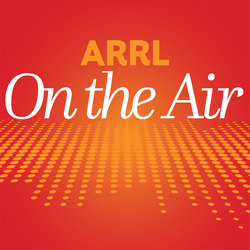 The latest episode of the On the Air podcast (Episode 10) includes an interview with ARRL Lifelong Learning Manager Kris Bickell, K1BIC, about ARRL's new "Learning Network" webinars.
The latest episode of the On the Air podcast (Episode 10) includes an interview with ARRL Lifelong Learning Manager Kris Bickell, K1BIC, about ARRL's new "Learning Network" webinars..jpg) The latest edition of the Eclectic Tech podcast (Episode 18) features discussions of a revolutionary new RF-shielding material; storing software in the Arctic, and Al Rabassa, NW2M, on the importance of fan cooling.
The latest edition of the Eclectic Tech podcast (Episode 18) features discussions of a revolutionary new RF-shielding material; storing software in the Arctic, and Al Rabassa, NW2M, on the importance of fan cooling..jpg) The ARRL Online Auction also features a wide assortment of vintage books, including past editions of The
The ARRL Online Auction also features a wide assortment of vintage books, including past editions of The 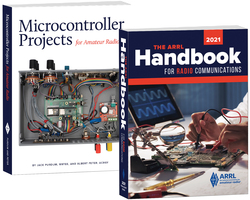 offers new material on the behavior of RF chokes; circuits for PIN-diode RF switching; adding SDR panadapters to older radios; digital modes FT4, FT8, and MSK144; care and feeding of power grid tubes; new feed line chokes for receive and transmit; ac power connector types and wiring, and more.
offers new material on the behavior of RF chokes; circuits for PIN-diode RF switching; adding SDR panadapters to older radios; digital modes FT4, FT8, and MSK144; care and feeding of power grid tubes; new feed line chokes for receive and transmit; ac power connector types and wiring, and more.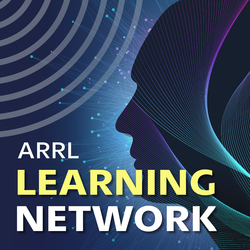 log, getting on the summit, operating and closing it out. It will be a fun informative session.
log, getting on the summit, operating and closing it out. It will be a fun informative session.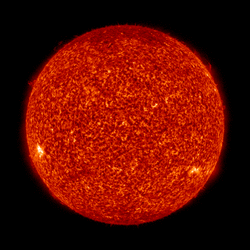 Average daily sunspot number increased from 0 to 13.1, while average daily solar flux went from 71.8 to 73.1.
Average daily sunspot number increased from 0 to 13.1, while average daily solar flux went from 71.8 to 73.1.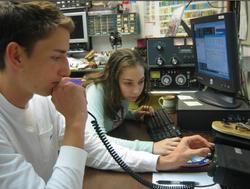 October 17 - 18 -- Worked All Germany Contest (CW, phone)
October 17 - 18 -- Worked All Germany Contest (CW, phone)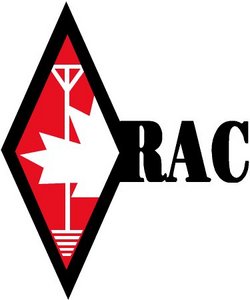 Band to Accommodate Flexible Use and Preliminary Decisions on Changes to the 3800 MHz Band.
Band to Accommodate Flexible Use and Preliminary Decisions on Changes to the 3800 MHz Band.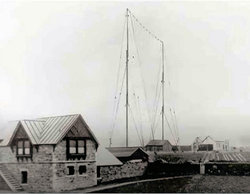 "the eyes and ears of the Commission."
"the eyes and ears of the Commission." Jamboree on the Air from the Wadi Degla Protectorate in the northern part of Egypt's Eastern Desert. Modes will include SSB, FT4, and FT8 (F/H).
Jamboree on the Air from the Wadi Degla Protectorate in the northern part of Egypt's Eastern Desert. Modes will include SSB, FT4, and FT8 (F/H).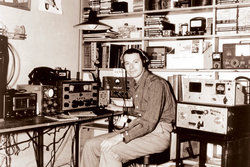 became MTV, and held executive roles at Pioneer Electronics and Panavision," Rolling Stone's Tim Ingham wrote. Holzman was also behind the Authentic Sound Effects albums that became popular with radio and TV producers and helped pull Elektra out of debt.
became MTV, and held executive roles at Pioneer Electronics and Panavision," Rolling Stone's Tim Ingham wrote. Holzman was also behind the Authentic Sound Effects albums that became popular with radio and TV producers and helped pull Elektra out of debt.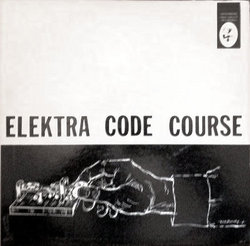 headphones on and right hand on a key, in front of a desk laden with now-vintage ham gear. Spotting the article, ARRL Contest Update Editor Brian Moran, N9ADG, emailed to ask, "Tell me this guy is not a ham." The image does capture a professional tape machine, however, so it's possible that Holzman's ham shack and home studio were one and the same. A WRL-print QSL card -- visible in the background and a bit hard to see -- displays Holzman's call sign, K2VEH. It's not known how long Holzman was a radio amateur, but judging from the stack of equipment in front of him in the photo, he must have fired up that Globe Scout once in a while, when not building the Elektra label.
headphones on and right hand on a key, in front of a desk laden with now-vintage ham gear. Spotting the article, ARRL Contest Update Editor Brian Moran, N9ADG, emailed to ask, "Tell me this guy is not a ham." The image does capture a professional tape machine, however, so it's possible that Holzman's ham shack and home studio were one and the same. A WRL-print QSL card -- visible in the background and a bit hard to see -- displays Holzman's call sign, K2VEH. It's not known how long Holzman was a radio amateur, but judging from the stack of equipment in front of him in the photo, he must have fired up that Globe Scout once in a while, when not building the Elektra label.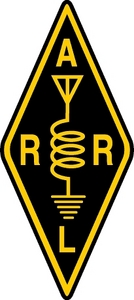 New Section Managers have been appointed in Northern New Jersey and in Delaware. Bob Buus, W2OD, has been named as Northern New Jersey Section Manager to succeed Steve Ostrove, K2SO (SK), who stepped down on September 22 due to failing health. Buus will serve out the current term of office, which concludes on June 30, 2021. Mark Stillman, KA3JUJ, was appointed as ARRL Delaware Section Manager. He succeeds Bill Duveneck, KB3KYH, who moved out of the Delaware Section after serving since 2014.
New Section Managers have been appointed in Northern New Jersey and in Delaware. Bob Buus, W2OD, has been named as Northern New Jersey Section Manager to succeed Steve Ostrove, K2SO (SK), who stepped down on September 22 due to failing health. Buus will serve out the current term of office, which concludes on June 30, 2021. Mark Stillman, KA3JUJ, was appointed as ARRL Delaware Section Manager. He succeeds Bill Duveneck, KB3KYH, who moved out of the Delaware Section after serving since 2014..png) This weekend is JOTA weekend! Scouting's Jamboree on the Air (JOTA) and concurrent Jamboree on the Internet (JOTI) will be held Friday, October 16, through Sunday, October 18. A new US
This weekend is JOTA weekend! Scouting's Jamboree on the Air (JOTA) and concurrent Jamboree on the Internet (JOTI) will be held Friday, October 16, through Sunday, October 18. A new US 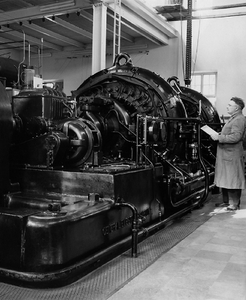 SAQ has scheduled a UN Day transmission. VLF Alexanderson alternator station SAQ at the
SAQ has scheduled a UN Day transmission. VLF Alexanderson alternator station SAQ at the 







